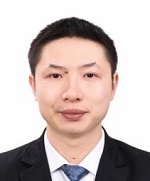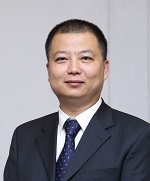Special Session: Reconfigurable Smart Antenna (RSA) Technology for Next-Generation Wireless Networks
The forthcoming sixth-generation (6G) wireless networks are anticipated to deliver unparalleled capacity, exceptional reliability, extensive connectivity, and advanced services that extend beyond traditional communications. Against this background, reconfigurable smart antenna (RSA) technologies, such as movable antennas, fluid antennas and electromagnetically reconfigurable metasurfaces, have attracted wide attentions from both academia and industry for enabling significantly enhanced coverage, efficiency, reliability and security in future wireless networks. The employment of RSAs offer unprecedented flexibilities and reconfigurabilities in antenna position, orientation, radiation, polarization, and frequency responses, thereby providing additional degrees of freedom (DoFs) for designing more efficient transceivers in wireless communication and networking applications. Compared to conventional antennas, the dynamic capability of RSAs presents enormous opportunities to unlock new dimensions for improving adaptability, resilience, and overall performance of the next-generation wireless networks.
Although the RSAs can fully exploit the DoFs in the spatial domain, the associated channel estimation and signal processing algorithms normally associate with high computational complexity. With advancements in artificial intelligence, this challenge can potentially be addressed through intelligent mechanisms for position-adjusting, port-selection, and electromagnetic reconfiguration of the reconfigurable antennas. Additionally, thanks to the additional DoFs introduced by RSAs, random wireless channel fading can be fully utilized through software-define approaches. Nevertheless, to fully unlock the potential of RSAs, numerous unresolved challenges remain in concerning the design of next-generation intelligent networks by leveraging these technologies. The primary goal of this proposal is to establish a platform that fosters collaboration and knowledge sharing, enabling the research community to collectively harness the full capabilities of RSAs in shaping the future of next-generation intelligent wireless networks.
Related topics:
Important Dates:
Submission Deadline: March 25, 2026
Notification: April 25, 2026
Registration: May 10, 2026
Submit Method:
1, submit it via the link: http://www.easychair.org/conferences/?conf=icicsp2026 (after entering the link, click on the corresponding topic)
2, send your manuscript to icicsp@vip.163.com with subject "Submit+Special Session-11+Paper Title". (请通过邮件发送稿件,邮件题目:Submit+Special Session-11+Paper Title)
CHAIRMANS:

Tong-Xing Zheng received the B.S. degree in Information Engineering and Ph.D. degree in Information and Communications Engineering from Xi’an Jiaotong University, Xi’an, in 2010 and 2016, respectively. From 2017 to 2018, he was a Visiting Scholar with the School of Electrical Engineering and Telecommunications, University of New South Wales, Sydney, Australia. He is currently an Associate Professor with Xi’an Jiaotong University. His research interests include 6G wireless communication technologies, physical layer security, covert communications, reconfigurable intelligent surface, and integrated sensing and communications. He has published 3 book/chapters and 100+ papers in wireless communications. He was a recipient of Excellent Doctoral Dissertation Award of Shaanxi Province in 2019, and Best Paper Awards at Ucom 2023, ISCTech 2024, and ICCBD+AI 2024. He was honored as an Exemplary Reviewer of IEEE TRANSACTIONS ON COMMUNICATIONS in 2017, 2018, and 2021. He served as an Associate Editor of IET ELECTRONIC LETTERS from 2020 to 2023. He served as Session/Workshop Chairs for IEEE ICC 2022, IoTCIT 2024, ICCBD+AI 2024, and NCIC 2024. He has served as a TPC member for various IEEE conferences. .

Chongwen Huang, obtained his B. Sc. degree in 2010 from Nankai University, and the M.Sc degree from the University of Electronic Science and Technology of China in 2013, and PhD degree from Singapore University of Technology and Design (SUTD) in 2019. From Oct. 2019 to Sep. 2020, he is a Postdoc in SUTD. Since Sep. 2020, he joined into Zhejiang University as a tenure-track young professor. Dr. Huang is the recipient of 2021 IEEE Marconi Prize Paper Award, 2023 IEEE Fred W. Ellersick Prize Paper Award and 2021 IEEE ComSoc Asia-Pacific Outstanding Young Researcher Award. He has served as an Editor of IEEE Communications Letter, Elsevier Signal Processing, EURASIP Journal on Wireless Communications and Networking and Physical Communication since 2021. His main research interests are focused on Holographic MIMO Surface/Reconfigurable Intelligent Surface, B5G/6G Wireless Communications, mmWave/THz Communications, Deep Learning technologies for Wireless communications, etc.

Chunguo Li received the bachelor’s degree in Wireless Communications from Shandong University in 2005, and the Ph.D. degree in Wireless Communications from Southeast University in 2010. In July 2010, he joined the School of Information Science and Engineering, Southeast University, Nan jing China, where he is currently an Advisor of Ph.D candidates and Full Professor. From June 2012 to June 2013, he was the Post-Doctoral researcher with Concordia University, Montreal, Canada. From July 2013 to August 2014, he was with the DSL laboratory of Stanford University as visiting associate professor. From August 2017 to July 2019, he was the adjunct professor of Xizang Minzu University under the supporting Tibet program organized by China National Human Resources Ministry. He is the Fellow of IET, the Fellow of China Institute of Communications (CIC), and IEEE CIS Nanjing Chapter Chair. His research interests are in cell-free distributed MIMO wireless communications for 6G, and machine learning based image/video signal processing algorithm design.

Wei Liu received the B.E. degree from the University of Electronic Science and Technology of China, Chengdu, China, in 1999, the M.E. degree from Xidian University, Xi’an, China, in 2003, and the Ph.D. degree from the University of Southampton, U.K. Since 2007, he has been with the School of Telecommunications Engineering, Xidian University, where he is currently a Professor. With extensive research experience in wireless communications, his research interests on MIMO communication systems, interference management, joint communication, and computation and caching. He has published over 50 papers, leading multiple government-funded and industry-sponsored research projects, obtaining 30 authorized patents and 1 registered software copyright, as well as contributing to the development of the group standard "Information Technology - Terminology for Unmanned Clusters." He is a recipient of the First Prize of Shaanxi Higher Education Institutions Outstanding Scientific Research Achievement Award, Huawei Spark Award, First Prize of Shaanxi Provincial Science and Technology Award, and First Prize of the 2nd Shaanxi Provincial Graduate Innovation Achievement Exhibition.

Chaowen Liu is currently an Associate Professor with Xi'an University of Posts and Telecommunications. He received the Ph.D. degree in information and wireless engineering from Xi'an Jiaotong University, Xi'an, China, in 2018. From 2015 to 2017, he has been a Visiting Ph.D. Student with the School of Electronics and Computer Science, University of Southampton, UK. His research interests include spatial-domain index modulation, physical-layer information security, full-duplex and reconfigurable antennas aided wireless, and covert wireless. He has published one book/chapters and 40+ papers. He was a recipient of Best Paper Awards at Ucom 2023 and ISCTech 2024. He served as Session/Workshop Chairs for ISCTech 2024 and EEiSS 2025. He has served as a TPC member for various IEEE conferences.
